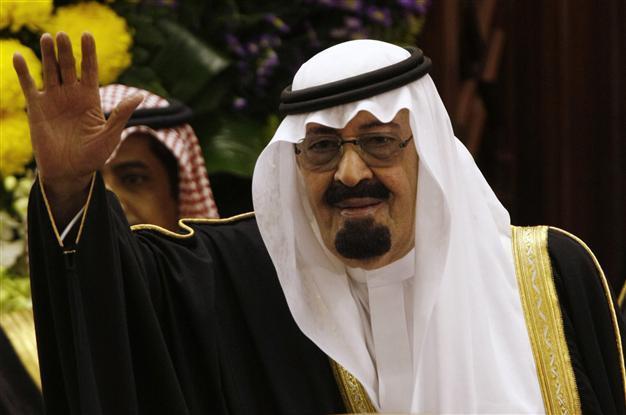Saudi clerics protest king's move to empower women
RIYADH - Agence France-Presse

King Abdullah granted women seats on the Shura Council, the country's top advisory council, for the first time on Friday, Jan. 11, 2013, giving them a long-awaited toehold in the ultraconservative kingdom's male-dominated political system. AP Photo
A group of hardline clerics protested outside the royal palace in Riyadh against the king's decision to appoint 30 women to the kingdom's top advisory body, a YouTube video posted on Wednesday showed.The footage of Tuesday's demonstration showed clerics protesting what they said were "dangerous changes in the country and these latest appointments in the Shura Council that do not represent the philanthropists and the good people." "These appointments are not representative of the whole society," one of the clerics told the small gathering, referring to King Abdullah's decision on Friday to name 30 women to the 150-seat Shura Council.
The group called for clerics to be granted similar representation on the council, which is appointed by the king to advise him on policy but cannot legislate.
The unidentified cleric said the group had gathered to demand a meeting with the head of the royal court, Khaled al-Tuwejari, to offer him "advice".
He was also shown criticising the refusal by Saudi officials to meet the protesters who had rallied despite the kingdom's ban on protests. The video footage showed a police car parked on the opposite side of the road.
Saudi human rights lawyer Walid Abulkhair told AFP that "the protest was against the appointment of women to the Shura Council." Abdullah's decrees marked a breakthrough in the conservative kingdom that imposes stringent restrictions on females, who are banned from driving and denied the right to travel without male consent.
The monarch took the decisions following consultations with religious leaders in Saudi Arabia, which applies a strict version of Islamic sharia law, according to the decrees.
The 30 chosen women include university graduates, human rights activists and two princesses.
Abdullah had been carefully treading towards change, introducing municipal elections for the first time in 2005.
In 2011 he granted women the right to vote and run as candidates in the next local election, set for 2015, because "we refuse to marginalise women's role in Saudi society."
















